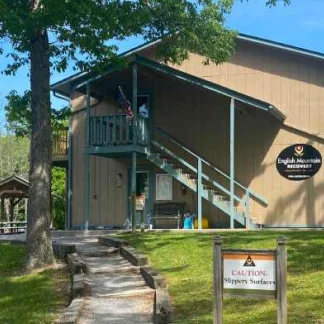English Mountain Recovery
Sevierville, Tennessee, 1096 Alpine Drive, 37876
Available Programs
- Adult program
- Program for men
- Program for women
- Total beds : 36
- Young adult program
Insurance and Financial
- Private insurance
- Self-pay options
- Monthly : $15,000
About this Facility
English Mountain Recovery offers a gender specific alcohol and drug addiction treatment rehab recovery program based on the 12-Step philosophy. Treatment include creative arts, experiential therapy and equine-assisted therapy. English Mountain Recovery is located in Sevierville, Tennessee.
English Mountain Recovery is based on the philosophy of the 12-Step Program by Alcoholics Anonymous. They also believe that a good recovery from chemical dependency involves mind, body and spirit healing, that is why they utilize holistic options including creative arts therapy, equine-assisted therapy, experiential programs, spiritual advising and psycho-education.
English Mountain Recovery utilize a 12-Step approach in combination with holistic options, they focus on the individual’s mind, body and spirit. Their program may include 12-step program, individual, group and experiential modalities of therapy, treatment for co-occurring disorders, psychodrama, creative arts, family program, spirituality, recreation and leisure, Equine Assisted Therapy and relapse prevention.
Contact us for more information: (877) 459-8595

Contact English Mountain Recovery
Connect with English Mountain Recovery by calling their admissions team directly.
(877) 459-8595 Website Get Directions